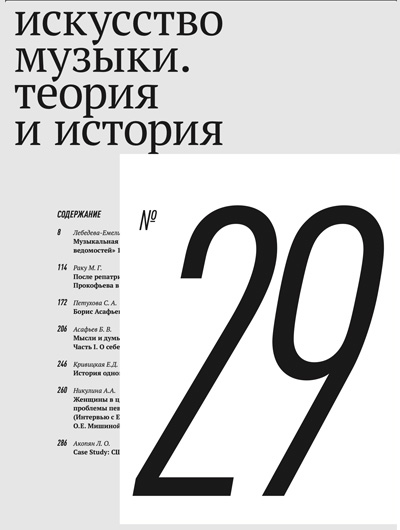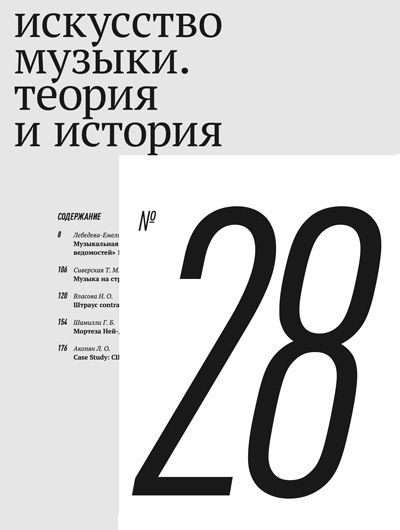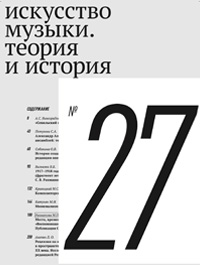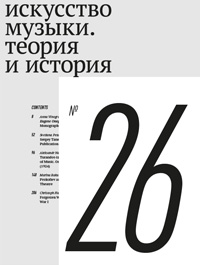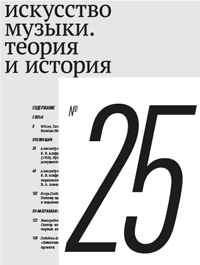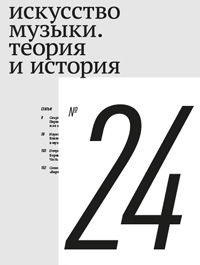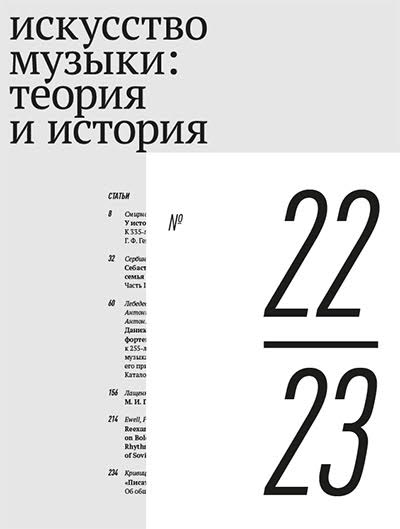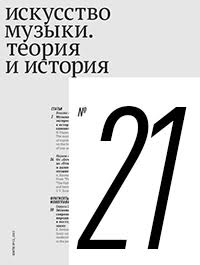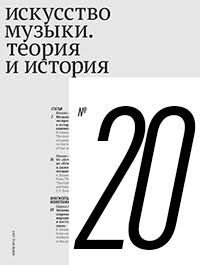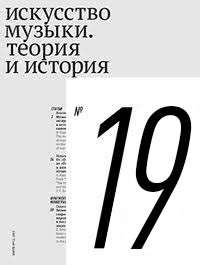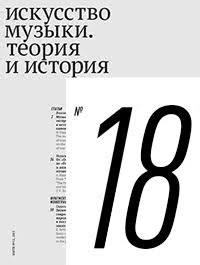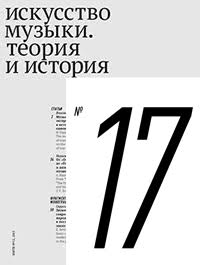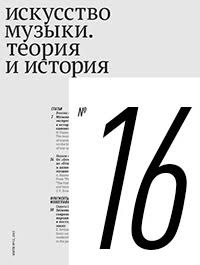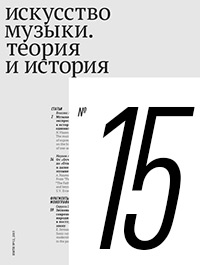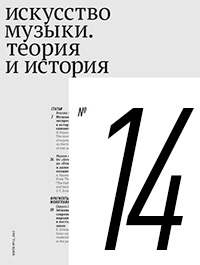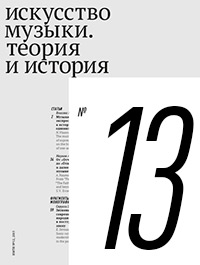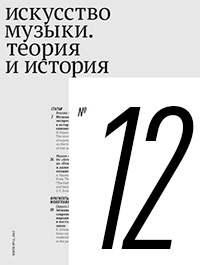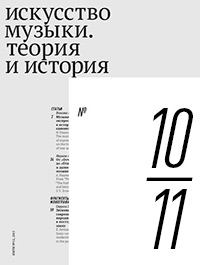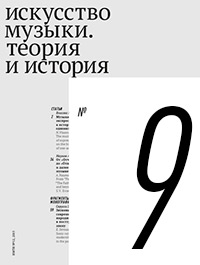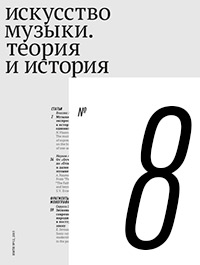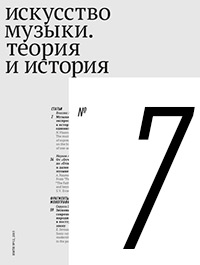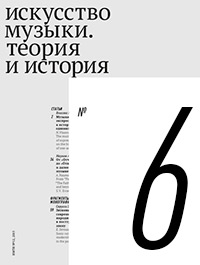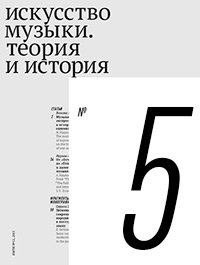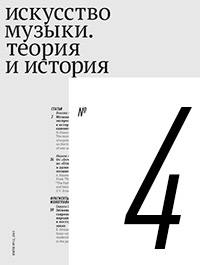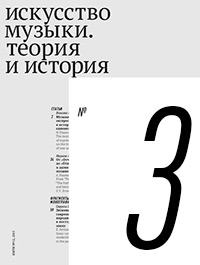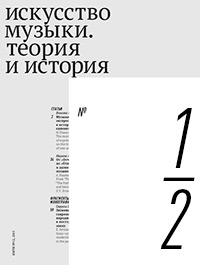2019 ¹ 21
This is the first musicological study dealing with one of the major works by the 19th century Russian composer Aleksey L’vov – Prayer by the Cross (Stabat Mater). The work’s compositional history and the history of its performances in Russia and Europe is described; the differences between its reception by the Russian and European audiences are analyzed.
The history of the confict initiated by Filaret, the Metropolitan of Moscow, is traced for the first time. The arguments put forward by him against the performance of L’vov’s work in Moscow are cited; the consequences of the conflict that influenced the work’s historical fate, are discussed.
It is shown for the first time that the free Russian translation of the Latin text of Stabat Mater was authored by V. A. Zhukovsky and N. V. Kukol’nik. The second version of the literary text of L’vov’s work, done by V. V. Bazhanov, is analyzed, as is the character of its relation to the music.
The article is devoted to the problem of the settlement of copyright questions between the Russian and German sides in the 1900–1910s. It considers the history of the emergence of Russian copyright law of 1911. The work also includes an analysis of correspondence between Germany and Russia on copyright issues in connection with the Bern Convention of 1886. It presents the main legislative acts of Germany and Russia regulating this branch of law, describes the features of the enactment of the Russian-German Convention of 1913. The main material for the article was sources and literature from the funds of German and Russian archives and libraries.
In the published pronouncements of Edison Denisov, three notions are mentioned especially often and in different contexts: light, plasticity and purity. This triad, in essence, lies at the foundation of his aesthetics. In particular, the category of purity is associated with such qualities as clarity of conception, avoidance of anecdote, of ‘cheap literary fantasies’ and of any other concessions to unrefined tastes of common audience. No surprise that Denisov showed a strongly adverse attitude towards the so-called polystylistics. At the same time the polystylistics, understood as an attempt at the purity of a genuinely contemporary language through encroachment of tonal – that is, by definition, alien and largely regressive – elements, was for Denisov a peculiar temptation. The history of Denisov’s long and, perhaps, not always fully successful struggle with this temptation constitutes a very special and exciting line in his creative biography, reflecting a certain global trend. On a number of examples from Denisov’s works of the 1970s and 1980s it is shown that the ‘convinced anti-polystylist’ experienced considerable difficulties in his opposition to the growing pressure of unpleasant and even hostile, but extremely influential tendencies.
The materials concerning the music culture of ancient Persia are lost; an information on it can be obtained almost exclusively through indirect evidences. The data under analysis embrace the period from the conquests of Cyrus the Great (6th century BC) to the end of the Sasanian rule (7th century AD). The author pays due attention to such historical realities as the influence of the Middle-Eastern cults, which flourished under the Achaemenids, on the Dionysian mysteries, and the opposite influence of the Greek culture on the Persian one as a result of Alexander the Great’s expansion; the importance of Zoroastrianism; the formation of the Parthian culture related to the return of Irano-Persian traditions; the syncretic nature of the Kushan culture. It is noted that the culture of ancient Persia, despite all the historical vicissitudes, preserved the potential of the autochthonous tradition. The basic idea of Persian music, known as maqom and analogous to the Indian rāga, shows similarities with the Classical Greek idea of nomos (‘law’). All the three traditions diverged in the course of their development; we can judge about some peculiarities of the ancient Persian musical thinking taking into account that its elements were adapted by the classical music of the Islamic world and by the music of the Christian liturgy.
First Russian publication of selected works by the outstanding German musicologist Carl Dahlhaus (1928–1989), with introductory article by his pupil Michael Heinemann and postface by the collection’s compiler, translator and author of the comments Stepan Naumovich. The published texts reflect the breadth of Dahlhaus’s scholarly interests: new music, music theory, music history and aesthetics.
The book consists of three section. The first one, ‘On Romantic Boards’, is devoted to major figures and important events of the early 19th century opera theatre. The second section deals with the history of the Soviet opera of the 1920–30s. The third section addresses the contemporary situation of music theatre with its actively discussed problems. Some articles are reprinted from scholarly publications of the 1990–2010s; more than a half of the book consists of new texts.
The present publication of the catalogue of materials from the Russian-language Belgrade newspaper Novoe vremya (‘New Time’) of 1925 continues the project ‘Writing on Music in Russian Diaspora: an Annotated Catalogue of Articles Published by Russian-Language Press Abroad’.
